A Report from HTC President Rich Maroko

The pandemic sparked a change in working people across the country. It was hardly the first time workers were suffering from dangerous working conditions, low pay, and erratic scheduling, but the pandemic shined a light on just how insecure these jobs – and the lives of those who relied on them – really were. Fed up workers realized they didn’t have to settle for what employers were offering. They had the power to change things by organizing a union.
Workers in the hotel industry were no exception. Over the last two and a half years, over 1,000 workers at 29 properties have joined our Union. Hundreds more are meeting with organizers now.
Today, I want to share just some of what they’re reporting from non-union hotels and lay out our plan to organize the non-union industry. We are very proud of how our Union is able to transform the lives of more working people, providing them security, excellent benefits, and respect at work. But our organizing work does not just benefit non-union workers, it helps all of us. In fact, it is a vital part of keeping the wages and benefits we have fought so hard for at union hotels.
THE UNION DIFFERENCE
As the number of new, non-union hotels in the New York City area exploded over the last fifteen years, conditions at non-union hotels became much worse. At one time, when there were very few non-union hotels, hotels were afraid to be too greedy thinking it would drive their employees to organize. But now, with hundreds of non-union hotels operating in our region, non-union employers have the confidence of looters – acting with total disregard for the consequences of treating their workers poorly.
The grueling work assignments, dangerous conditions, and lack of job security in non-union hotels reached new lows during the pandemic. Not only did non-union workers not get extended medical benefits, severance payments, or a strict, enforceable safety protocol like our members, but they couldn’t even rely on going back to the jobs they had held for years when their hotels reopened.
During the pandemic, non-union room attendants reported cleaning as many as 26 full-size rooms. Many had to bring their own masks, gloves, and in some cases, had to buy their own cleaning supplies out of pocket. While managers worked from the comfort of home, workers were left to do dangerous tasks without training – such as removing unruly guests and in one case, checking the hotel’s boiler.
Most do this work for less than half of what our members earn. Many make minimum wage (or close to it) and none get daily overtime, part-time premium pay, or have the ability to negotiate for extra pay. To make matters worse, many non-union employers are breaking basic wage and hour laws. Workers at multiple properties report being forced to stay late off the clock, clean rooms during unpaid breaks, and work for free during multi-day “trainings”. At one notoriously bad housekeeping agency, workers even reported being paid with unmarked gift cards that didn’t work.
Benefit packages are outrageously bad. Most non-union hotels have healthcare packages that are so expensive that most – if not all – of the workers are prevented from enrolling. At the recently organized Le Soleil Hotel, located in the heart of Midtown, only two of the workers in the entire bargaining unit are enrolled in the hotel’s benefit plan. Hotel workers employed by staffing agencies (the worst of the worst employers) report that some agencies offer no health benefits at all. Pension plans do not exist. In order to retire, low-wage, non-union hotel workers must save on their own.
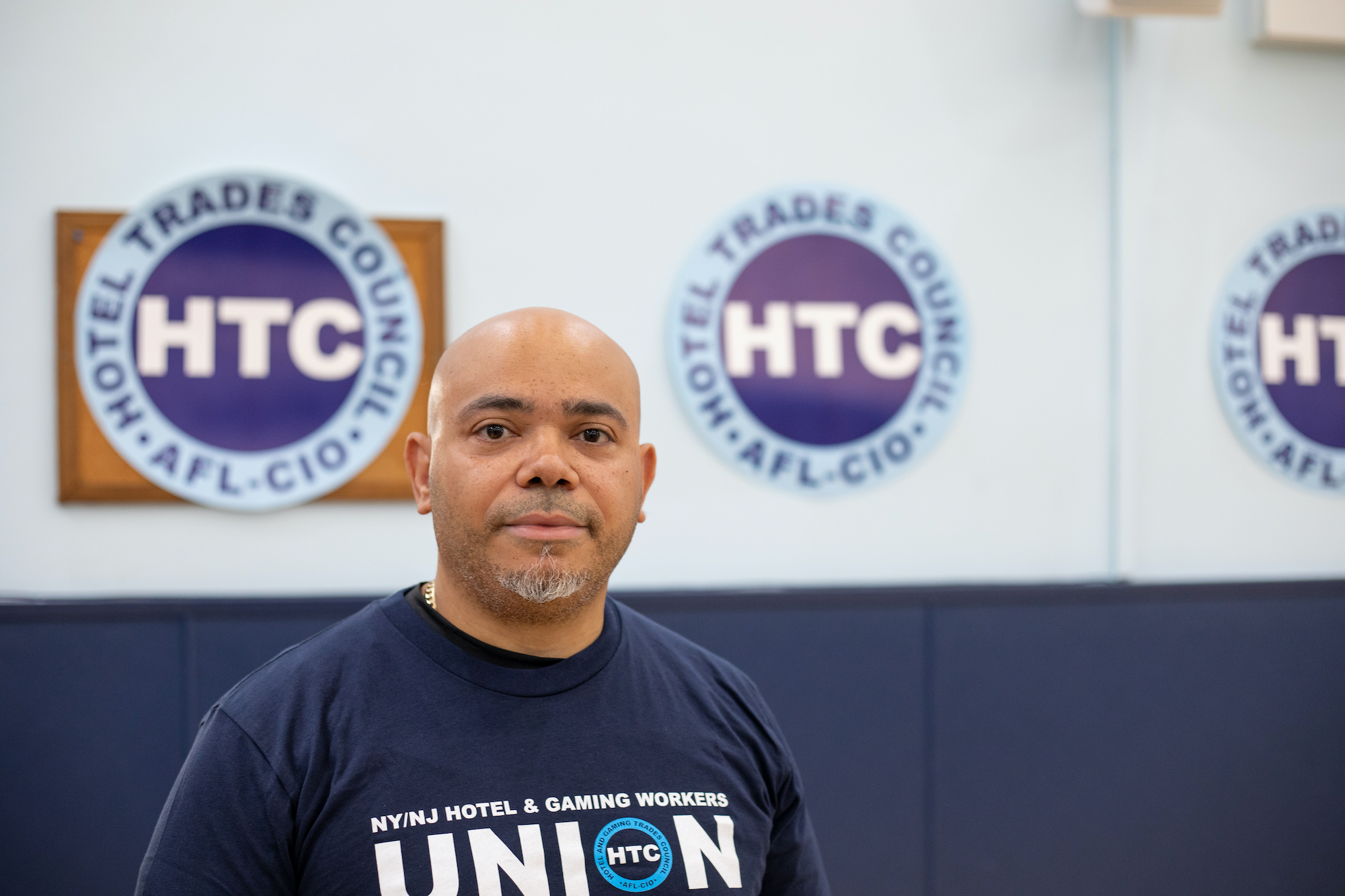
Non-union workers have no ability to plan their lives outside of work. If you look at almost any non-union schedule, you’ll find “SUBJECT TO CHANGE” scrawled across the top and shifts handwritten in daily. Hotels prefer to schedule a skeleton crew and add (or cut) staff at the last minute, based on the real occupancy. Room Attendants for one housekeeping agency, aren’t only notified if they are working but also where they are working until 7 am on the day of. That leaves workers just 2 hours to confirm childcare, commute across the City, and report to the job for their 9 am start. Dozens of non-union workers have reported that they can’t request time off, call out sick, or leave on time, and workers at multiple properties have arrived to work only to be told to turn around and go home, they are no longer needed.
Without the protections – both legal and otherwise – of a strong union, workers are powerless to change these conditions.
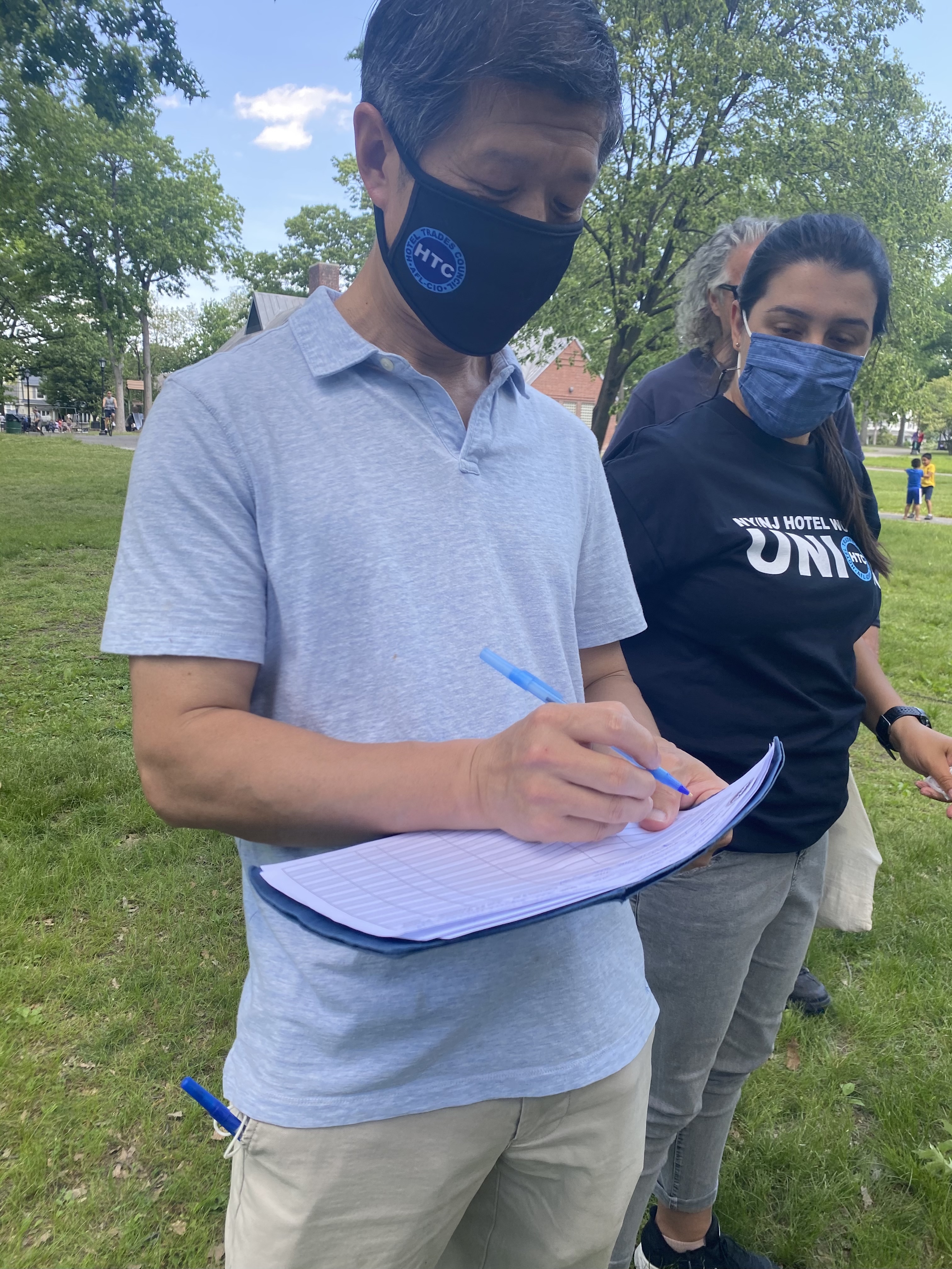
WHY DON’T NON-UNION WORKERS JUST JOIN THE UNION?
Simply put: Because it’s hard. The real question for non-union hotel workers is not “do you want to join our Union?” but rather “do you and your coworkers have the guts to fight for it?”
More and more workers are answering yes, but the path to victory still isn’t easy. With a few exceptions, workers who want to join our Union must ask the federal government to hold a secret-ballot election. For weeks leading up to the election, the hotel will typically spare no expense trying to coerce the workers into changing their votes.
Employers regularly bring in highly-paid, professional union-busters who orchestrate campaigns and coach managers on how to convince workers to vote against the Union. Often, there are countless violations of federal labor law including illegally firing union supporters, buying the workers off with promises of wage increases, raffles, and parties, and threatening the workers could lose their jobs if they vote for the Union. They have lower-level managers do their dirty work, pulling workers aside to lie to them and try to intimidate them into ratting each other out. Meanwhile, owners and corporate managers will fly in, pretending they “didn’t know” how bad conditions had gotten and begging for a chance to fix the problems (as if those at the top don’t make the final decisions about the economics of their hotels).
They tell bald-faced lies about our staff and our contracts, alleging the Union is run by the mafia, pretending we don’t offer health benefits to workers in New Jersey, claiming that the Union won’t allow workers to talk to management directly, and purporting that if workers get steady days off they will lose all flexibility and won’t be able to switch shifts when something comes up.
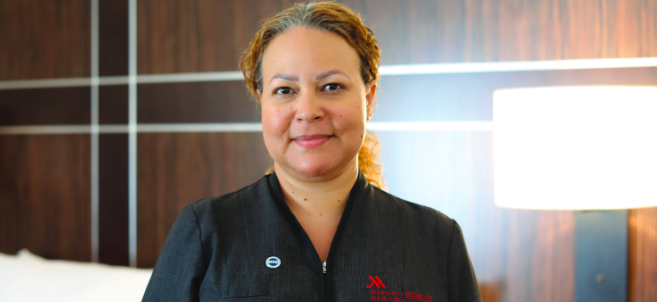
They also tell much trickier half-truths. For instance, in multiple campaigns, management or their consultants have told workers that their wages could go down in contract negotiations which – while technically possible – has never happened in the over 80-year history of our Union. We have negotiated hundreds of new contracts and every single one has increased wages and none have reduced them.
As ridiculous as these claims may seem to the seasoned Union member, these anti-union campaigns can be very effective. Keep in mind, many hotel workers have no union experience and can’t easily tell when management is lying about something in our contracts. Plus, emotions are running high. Everyone is nervous about losing their jobs (unlike our members, non-union workers are not used to having any protections, let alone a Business Agent who can come to the hotel and back them up) and they are exhausted (even the briefest anti-union campaigns last for close to a month, running 24/7).
Before publicly filing for an election, our Union’s organizing team will meet with workers in secret, building a network of support for the Union at the hotel and spending hours preparing workers for what to expect from management’s campaign. They know that any worker who is not prepared, no matter how gung-ho they are about the Union, is almost guaranteed to fall for the hotel’s ruthless tricks.
Because of our talented team and their around-the-clock efforts, we almost always win with super-majorities. But winning the election is really just a hoop to jump through so that our Union can represent the workers at the negotiating table. The real victory is winning our contract – and all the pay, benefits, and protections that come with it. To do that, the workers need to be ready to go after the one thing employers care about: their wallets. That means they need to be ready to speak out publicly about their boss, convince guests to boycott the property, and of course, potentially walk off the job and go on strike.

Most of the non-union hotels will need to be organized this way, meaning we are inevitably going to find ourselves with fights on our hands in the years ahead. That’s where you come in.
DOING YOUR PART
While it is important to us to help non-union workers transform their workplaces and get the power and respect that our members have, it is equally important that we organize in order to protect our existing members. The growing number of non-union hotels poses two major threats to our Union. First – and most immediately – it leads to more layoffs in union shops. It’s simple: every guest that stays at a non-union hotel is not staying a union hotel, meaning there is one less union member working. The second, very serious threat is the pressure the growing non-union industry is putting on union hotels. The reason the union hotel industry can afford to pay the wages and benefits in our contracts is because the majority of hotels in our region are union and paying the same. If when we sit down to negotiate our next contract, less than half of the industry is unionized, union hotels will likely tell us that they are at such a competitive disadvantage that “if we pay any more, it will put us out of business”.
In the last couple of years, we have won several significant pieces of legislation that together will do a lot to stop out-of-control hotel development: special permits, which will make it harder to build low-quality hotels in New York City, improved enforcement against the illegal hotel industry being run on websites like Airbnb, and funding and regulatory changes to encourage the conversion of existing, bad hotels into affordable housing.
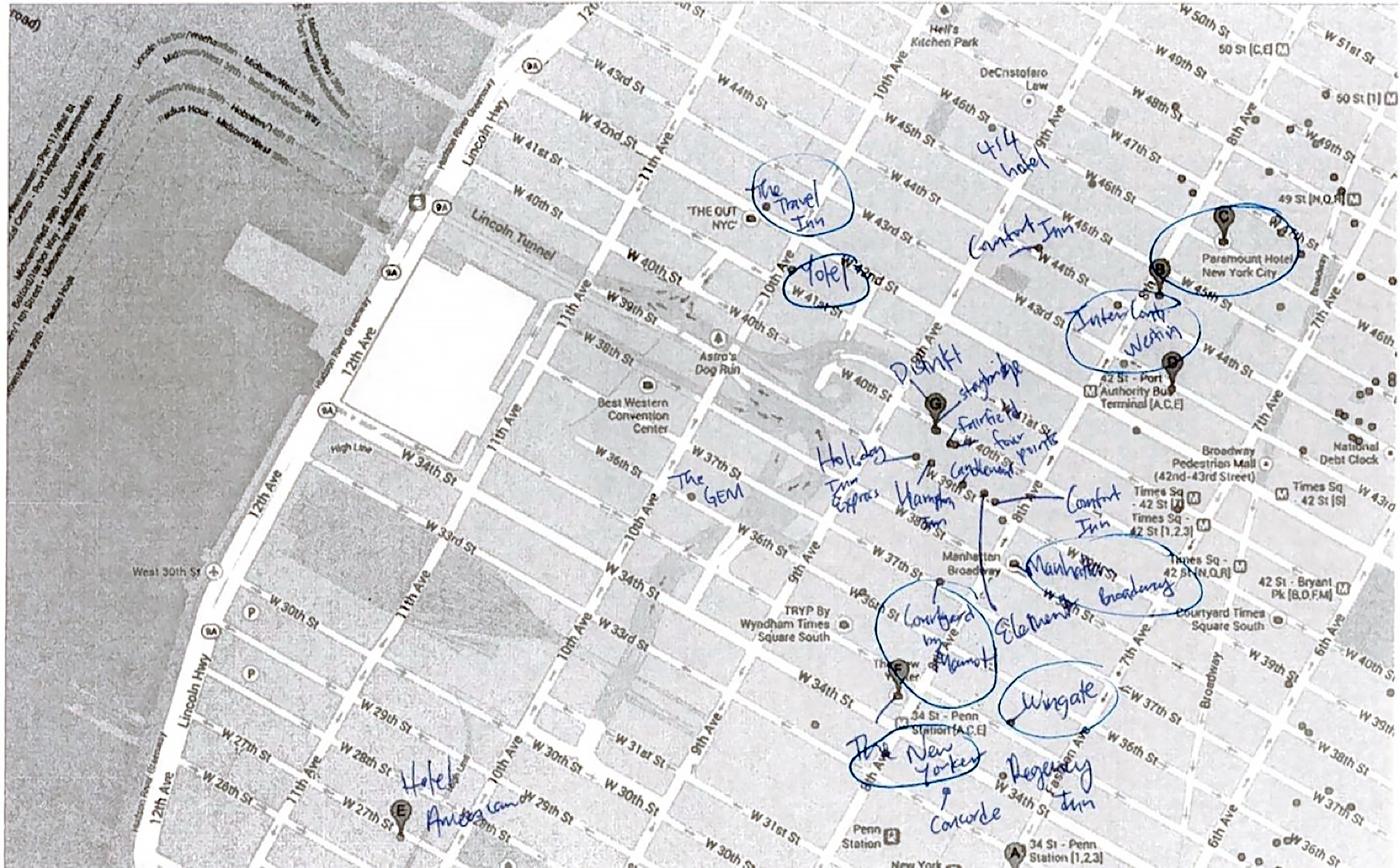
But we still need to contend with the existing non-union industry, where we are facing large, public fights with wealthy hotel owners and developers. We have doubled the number of staff assigned to meet with non-union workers, develop organizing strategies, and most importantly, lead campaigns to win a strong union contract. We also successfully lobbied for a city-wide law requiring hotels to notify guests in the event of a strike or picket line, making it easier for us to turn business away from hostile employers. We can’t run those picket lines with staff alone – we will need you to show up in force.

That’s not all. We also need you to connect us with workers in the non-union industry: your friends, your family, and in some cases, your coworkers who took non-union work while waiting to be recalled. Please take a minute to visit our website and tell us where you know people. We may just be secretly organizing a hotel where someone you know works. Furthermore, don’t give them the wrong advice. Many of our members tell friends and family to keep their heads down and “wait until the Union comes in”. This is the exact opposite of what is needed. They need to come meet with union organizers in secret, to learn about the law, and to prepare so that they are not afraid during the inevitable anti-union campaign.
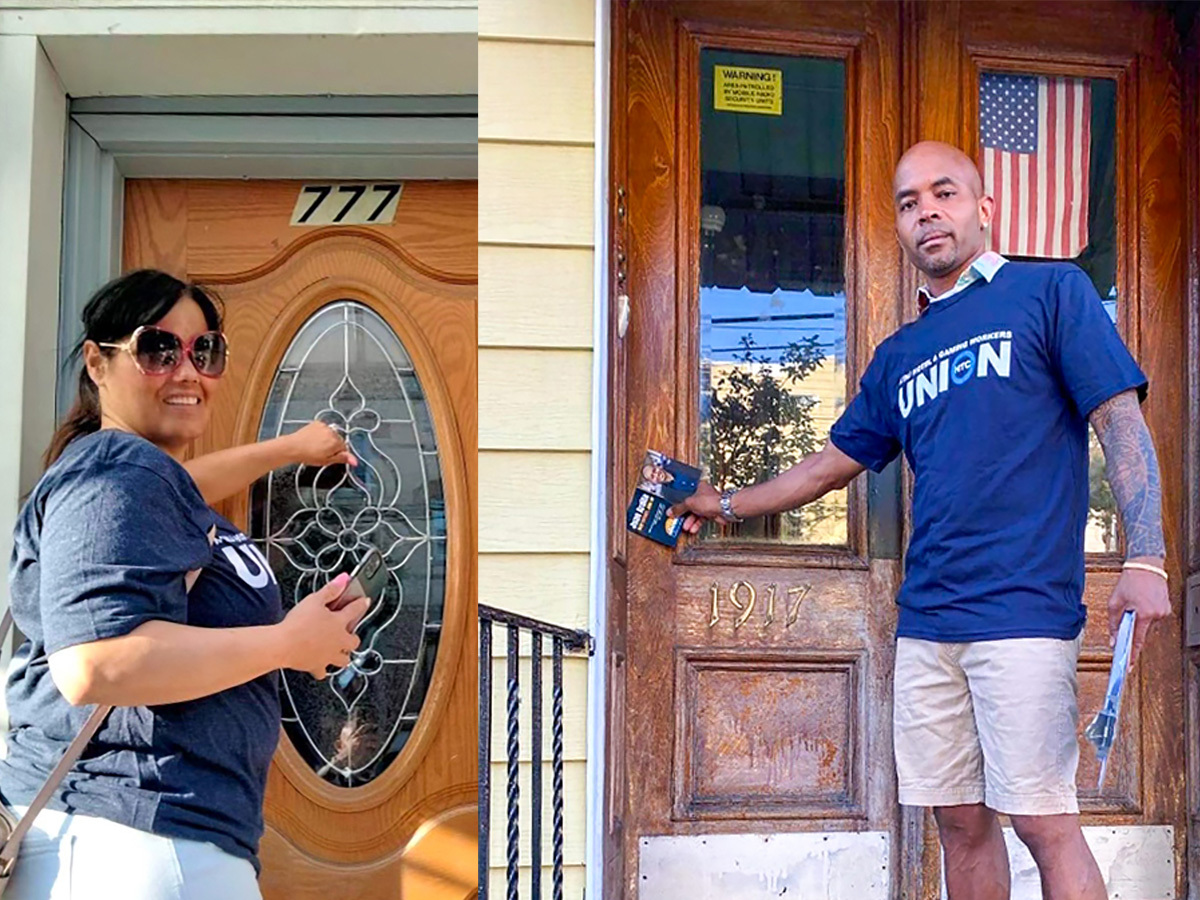
The unchecked growth of the non-union hotel industry is by far the most significant threat facing our Union and our members’ way of life. We need to treat it that way. Every one of us must do our part to take the industry head-on, whether that be bringing non-union hotel workers you know to meet with us, walking picket lines, or building the political power we need to stop the bleeding.
In Solidarity,
HTC President Rich Maroko


